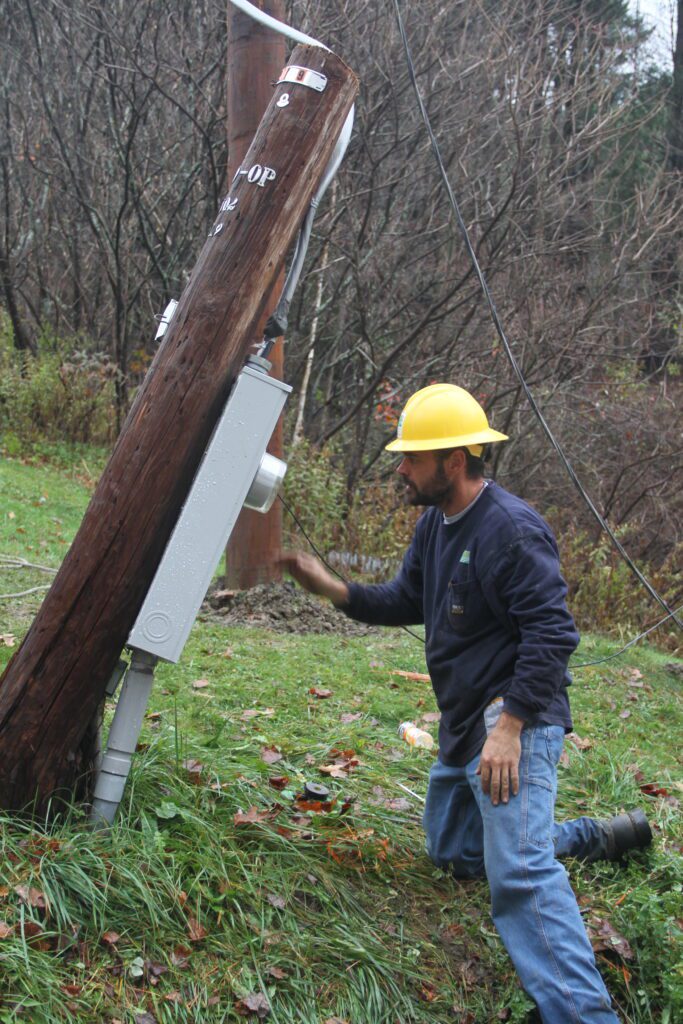By the WEC Board of Directors, ECFiber, CVFiber, NEK Broadband

While Washington Electric Cooperative’s member owners will progressively be receiving new access to high-speed broadband over the next few years starting this summer, it will be accomplished without low-interest loans through WEC. The Communications Union Districts (CUDs) expect to receive sufficient grant funding from the federal government, administered by the Vermont Community Broadband Board, to provide enough support for them to build out about 60 percent of the fiber infrastructure required for high-speed internet access. With these assets, the CUDs are confident they can secure loans to complete the remainder of their networks over the next four to seven years.
It has long been recognized that, given the rural character of where we live, modern levels of high-speed internet have not been available to most WEC members, to their detriment. More than three years ago, several of Washington Electric Cooperative’s Board, our members, and various groups of Vermonters began talking with each other and with government representatives about how we as an electrical Co-op might use our resources to help expedite broadband deployment in WEC’s service territory.
Leaders of the Co-op and of the three CUDs that serve the towns of WEC territory (ECFiber, CVFiber and NEK Broadband) realized that the four organizations shared a common goal to bring world-class fiber-optic based broadband internet service to the rural parts of Vermont. WEC, as an electric cooperative, is eligible to apply for relatively low-cost loans through the Rural Utilities Service (RUS) of the US Department of Agriculture to improve its electric service. These leaders realized it could also be possible to pay for the construction of a fiber network that could be used for both internet access and improved internal communication for WEC’s electric operation. The CUDs would lease, at cost, the use of the fiber. At the time, federal grant opportunities for Vermont high-speed broadband did not exist.
Now, as a result of the response to the COVID-19 pandemic, the state and federal governments are bringing significant grant funding to the CUDs directly. The CUDs and the Co-op have realized that the idea of funding the construction through WEC via federal RUS loans is no longer essential. Indeed, from a business perspective, it would be less cumbersome for them to manage the project’s financing, construction, and operation independent of WEC, and pose less of a risk to the Co-op’s balance sheet.
Therefore, the partnership between the CUDs and WEC will change from what was originally envisioned. The CUDs and WEC will continue to work together to support our shared goals and missions. Rather than borrowing RUS money and building part of the fiber network, and then leasing that network to the CUDs to support their broadband efforts, WEC will concentrate on doing the necessary work to prepare its poles and Rights-of-Way for installation of fiber by the CUDs. In addition, WEC and the CUDs are working together to promote and support both the deployment of broadband infrastructure and the creation of a network to allow WEC to communicate with its meters and with other electrical service devices necessary to maintain and improve our infrastructure, improving reliability and programs available to members.
